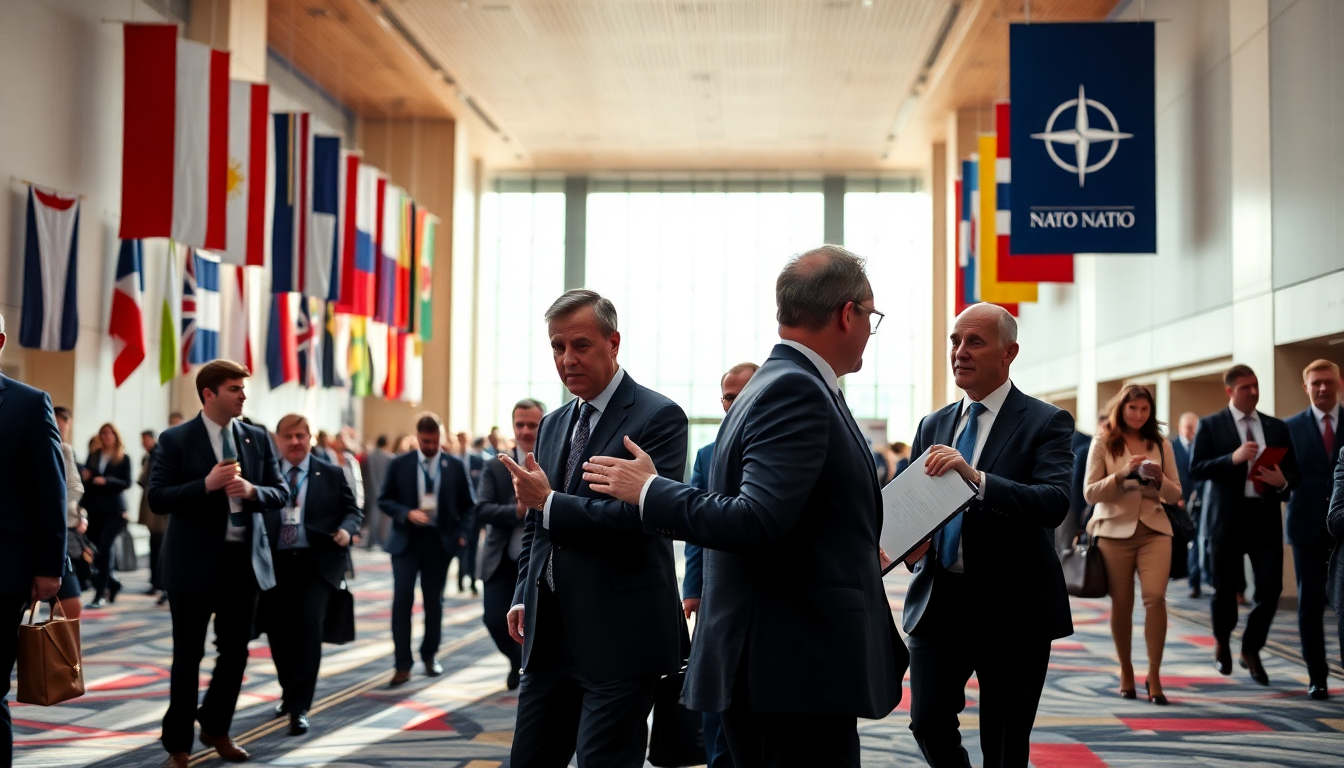Table of Contents
This week, The Hague is buzzing with anticipation as it prepares to host a pivotal NATO summit. Just when you thought the world couldn’t get more complicated, the announcement of a ceasefire between Israel and Iran adds another layer of intrigue to an already packed agenda. As global leaders gather, the spotlight will be on defense spending and international security—issues that are more crucial than ever in our rapidly changing geopolitical landscape. But what does this all mean for the future? Let’s dive in.
The backdrop of the NATO summit
As the NATO summit kicks off in The Hague, it’s essential to understand the backdrop of shifting alliances and growing security concerns. That recent ceasefire between Israel and Iran? While it’s a step in the right direction, it complicates discussions about defense and security. Leaders will be scrutinizing how this development might impact regional stability and NATO’s strategic approach. Alongside defense spending, expect conversations to cover broader topics like cybersecurity, counterterrorism, and collective defense strategies.
And let’s not forget the ongoing war in Ukraine, which remains at the forefront of NATO’s agenda. The alliance’s response to Russian aggression and how it affects the security of member states will be a hot topic. As countries assess their military readiness and contributions to NATO, the discussions at this summit will be crucial in defining the alliance’s future direction. How prepared are we really?
Domestic implications of international decisions
While leaders hash out defense strategies on the global stage, there’s a lot happening back home, too. Take the UK, for instance, where the Labour Party is facing a significant rebellion against Prime Minister Sir Keir Starmer’s proposed cuts to disability benefits. Over 100 Labour MPs are ready to push back, signaling a potential shift in the political landscape. This domestic dissent highlights a broader theme: accountability and governance are more relevant than ever as leaders juggle complex international negotiations.
The clash between international diplomacy and domestic political challenges serves as a reminder of how interconnected these realms are. As the Prime Minister tries to justify defense spending to NATO leaders, the backlash at home shows just how much international decisions can impact local communities. It’s a balancing act—how do leaders meet global responsibilities while also keeping their constituents satisfied?
Looking ahead: Future implications of NATO discussions
The outcomes of this NATO summit are poised to have significant implications for both international relations and domestic politics. As leaders debate defense spending and strategic priorities, the decisions made here will shape the future of NATO and influence the security policies of member states. Increased military spending could lead to a shift in national budgets and resource allocation, affecting sectors beyond just defense. Are we prepared for that?
Moreover, discussions around cybersecurity and collective defense mechanisms are likely to spark new initiatives to bolster member states’ resilience against emerging threats. As technology evolves, NATO’s ability to adapt its strategies will be crucial in tackling contemporary security challenges. What new measures will come out of this summit?
In conclusion, the NATO summit in The Hague is more than just another meeting—it’s a critical juncture for international diplomacy and security. By examining the interplay between global discussions and domestic politics, we can gain valuable insights into the ever-changing landscape of international relations. The outcomes of this summit will not only shape NATO’s future but also impact the broader geopolitical climate for years to come. Are we ready for what lies ahead?


